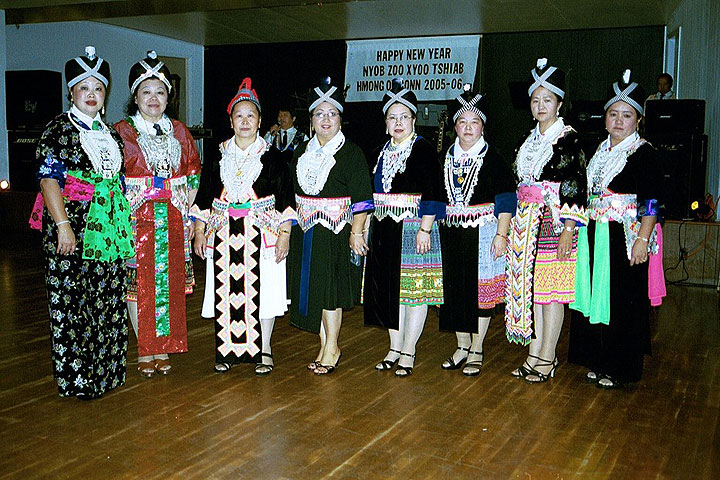A tribal group originally from Mongolia who migrated to Laos

Our newest exhibition, "Coffee: A Connecticut Story" is now on view through January 2026. Plan your visit today!
A tribal group originally from Mongolia who migrated to Laos

The Hmong are a tribal group originally from Mongolia who migrated to Laos where many still live today. There are also Hmong communities in northern Burma, Vietnam, Thailand, and China (where they are called Miao). Many Hmong assisted the United States during the Vietnam War, and came to this country as refugees in the late 1970s after the Communist takeover of Laos. At that time the Hmong were persecuted in Laos, and this still continues today with considerable fighting going on. The majority of Connecticut’s three hundred Hmong live in the Enfield area. Because they were farmers in Laos, many Hmong chose to live in the more rural towns north of Hartford rather than settle in a larger urban area. They work in factories and service occupations, and one young Hmong woman is a teacher at Manchester High School. Many Connecticut Hmong are moving away, unfortunately, to join relatives in the larger communities of Fresno or Minneapolis/St. Paul, or to go to states such as Arkansas where the cost of living is lower and the temperature higher.
Connecticut’s Hmong are both traditional and contemporary. Older women still create the gorgeous applique and embroidery work known as paj ndau, and they sometimes make traditional costumes for women and men, albeit with modern shortcuts (traditional dyeing techniques are sometimes replaced by printed cloth, for instance). Cultural leaders such as Boua Tong Xiong of Enfield still perform wedding and funeral rituals as well as conflict resolution according to time-honored practices. Because the men who understand the complete rituals (which take days) are so few, Boua Tong is determined to pass on his knowledge, teaching young men to play the ritual bamboo instrument qeej and sing the wedding and funeral songs. For two years, needlewomen from the community have been teaching their skills to students under CCHAP’s Southern New England Traditional Arts Apprenticeship Program.
New Year is the Hmong community’s most important annual festival. The New Year festival, always held late in the year, includes the ball toss, a game between young people that is a courtship ritual; a fashion show of different tribal costumes; a cultural presentation of dance and song; and a community-prepared feast with traditional foods. The spiritual connotation of the festival is for thanksgiving and new beginnings, and to honor ancestors. Hmong participants wear traditional dress, make speeches, and sing songs appropriate to the celebration. New Year also serves as a reminder and practice of traditions, as well as a gathering of cultural and social leaders from across the region.
The Hmong Foundation of Connecticut became a separate organization in 1996 after the CT Federation of Refugee Assistance Agencies, an umbrella service group, disbanded. Hmong leaders started the Foundation as a way to keep the community together and continue to provide many kinds of needed social, medical, and financial support. The Foundation, which is led by a Board of Directors, is open to all Hmong living in the state. Members provide services such as translation, transportation, family relocation to CT, assistance with finding jobs and access to health care, Hmong language classes, and traditional Hmong advising and dispute resolution. All activities and services are on a volunteer basis with a small budget based on dues from members of the community. The current president is Heu Lee, of Stafford Springs. The group sponsors Hmong New Year in November and a celebration for Hmong high school graduates in June. Currently the Foundation is in the process of seeking non-profit status and developing by-laws.
One Elizabeth Street
Hartford CT, 06105
Tuesday - Saturday 10 am - 5 pm, Thursday until 8 pm
Sunday 12 pm - 5 pm
Tuesday-Saturday 12 pm - 5 pm, Thursday until 8 pm
Always by appointment only.